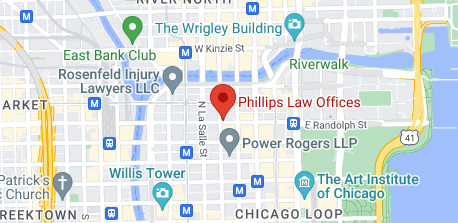
Call now for your
Free Consultation:

Free Consultation:

Free Consultation:
Many nursing home residents rely on breathing tubes to help them get the oxygen their bodies need. Intubated patients are at the complete mercy of their caregivers, as they are unable to speak, eat or drink without assistance. Often times, those on tracheostomy tubes also require assistance from ventilators, IV lines and feeding tubes. It’s especially important that nursing home staff exercise the utmost caution when caring for intubated patients. Careless mistakes can lead to clogged breathing tubes, a dangerous condition that can quickly result in serious injury or death.
Occasionally breathing tubes can become clogged with mucous, saliva or other debris, impeding the flow of oxygen. Complicating matters, intubated nursing home residents are unable to verbally alert staff to their discomfort or distress when a clogged tube occurs. It’s the responsibility of Illinois nursing home employees to maintain and monitor breathing tubes to ensure a clear passageway exists. Failure to prevent, identify or resolve a clogged breathing tube can result in dangerous oxygen deprivation – essentially, the choking of the patient – leading to brain damage, organ failure and even death.
Because of the high risk of clogged breathing tubes in elderly patients, nursing homes have a responsibility to make sure staff is properly trained and equipped to maintain and monitor breathing tubes. In fact, Illinois nursing homes are required by law to have personnel trained in tracheostomy care in order to accept patients who require intubation. Nursing home employees must be able to inspect tubes, keep them clear, and monitor patient breathing to ensure the tubes are functioning correctly. Nursing homes, convalescent homes and other long-term care facilities that allow patients to suffer injury or death due to clogged breathing tubes can be found legally liable for nursing home neglect or abuse.
Most families put a great deal of effort into researching and selecting a nursing home facility they believe will take exceptional care of their loved ones. Learning that an elderly family member has been severely injured or killed due to a preventable medical mistake like a clogged breathing tube is incredibly distressing. When a clogged breathing tube leads to catastrophic complications such as brain damage, families must contend with not only grief, but with expensive medical bills for life-sustaining treatment.
A number of factors can contribute to the occurrence of clogged breathing tubes in a nursing home. Statistics have consistently demonstrated that long-term care facilities with insufficient staff, poor training programs and/or improper management are linked to greater instances of life-threatening medical errors, from clogged breathing tubes to medication mistakes. These errors may not be intentional, but they are absolutely unacceptable. There is no justification for careless mistakes or oversights that threaten the health and safety of vulnerable nursing home residents. When someone you love has sustained a serious injury as the result of clogged breathing tubes, it’s important to understand your legal options. You may be entitled to compensation for resulting medical bills, pain and suffering, emotional anguish, or wrongful death.
At Phillips Law Offices, our nursing home abuse attorneys in Illinois understand the serious impacts clogged breathing tubes have on nursing home residents and the people who love them. Our law firm has been successfully representing victims of nursing home abuse and their families for more than 65 years. Our time-proven Chicago personal injury lawyers have the knowledge and resources to extensively investigate claims, build persuasive cases and aggressively fight for justice on behalf of our clients.
If someone you love has suffered harm due to nursing home negligence, contact our nursing home abuse attorneys today at (312) 346-4262 or contact us online to discuss your legal rights during a free consultation.

161 N Clark St #4925
Chicago, IL 60601
(312) 346-4262
Copyright 2023 Phillipslawoffices. All Right Reserved